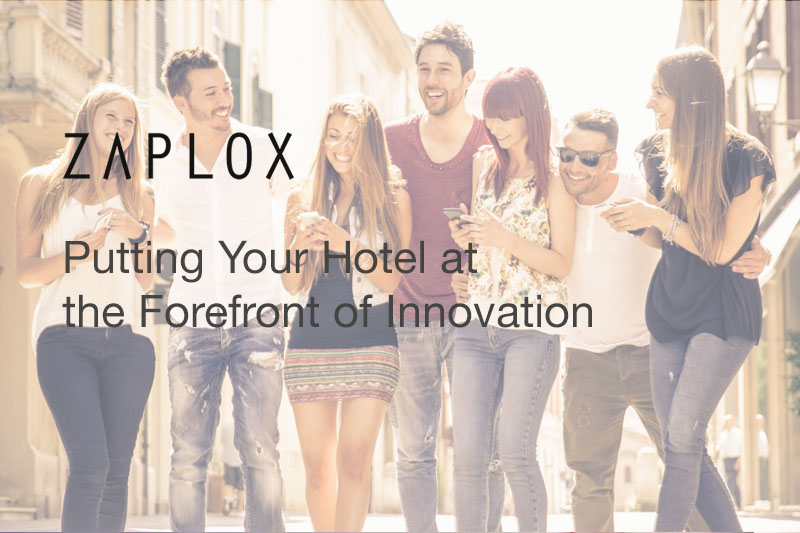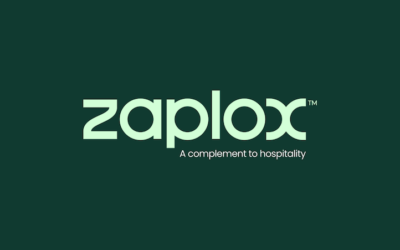These days, travel is anything but ‘standard’. With the steady rise in boutique hotels, unique accommodations, innovative technology, luxury travel brands and a personalized guest experience, the hospitality industry has evolved into a truly exciting landscape.
Of course, with all that is new and exciting, comes the question: How does a hotel stay at the forefront of the movement? How can a hotelier capitalize on this evolution to maximize their offerings and subsequent revenue model? More than anything, how can you continuously put your hotel at the forefront of innovation with ideas that can make you stand out from the competition and keep guests coming back?
Luckily, we have the answer(s) for you.
1. Think Outside the Box
With millennial and solo travelers on the rise (roughly one in four people say they will travel solo in 2018), hotels should look beyond traditional hotel rooms and layouts to include more non-traditional spaces. If your offering includes a blend of hotel amenities and alternative accommodations – you open yourself up to myriad of different travelers (millennials, solo travelers, young couples, bleisure travelers, families and more). This could include shared sleeping areas for up to multiple guests, and private rooms for families or groups.
By catering to this wider range of guest preferences, hotels can remain competitive against the rising market of vacation rentals and Airbnb’s. After all, guests today not only love authentic spaces, but also crave hotels offering their own personalities and unique experiences.
2. Offer Memorable Experiences
When considering new ways to innovate your hotel’s offerings, try to shift into the mindset of ‘experience over things’. Your hotel shouldn’t just represent accommodations, but also a truly memorable experience for each guest.
An extreme example of this approach can be seen with Peru’s Skylodge Adventure Suites; a boutique hotel offering ‘transparent luxury capsule’ rooms which hang off the side of a mountain. Accessing these rooms, in fact, involves climbing up a few hundred feet or zip lining, if that’s more your speed. Each room is about 24 feet long and 8 feet wide with enough room for four beds and is crafted out of aerospace aluminum and weather resistant polycarbonate. As the capsule is completely transparent (with the exception of a private bathroom), guests are treated with a 300-degree view of the Urubamba Valley. Not surprisingly, this experience comes at a price, with each room coming at a $1,000/night fee.
While the Skylodge is, of course, an extreme example, it still showcases the value that is associated with a unique experience. The Skylodge represents a hotel which, despite its price, is constantly booked solid months in advance, with guests eager to get a taste of the experience they’ve seen plastered across Instagram and media outlets. This can be achieved on a much smaller scale of course — the question just becomes, how can your hotel offer an experience, not just a room? This could involve the rooms, your hotel’s partnerships, food, art, interactive experiences and more.
3. Leverage Social Media
Any hotel hoping to maximize their marketing strategy knows that social media and online reviews simply can’t be ignored. However, it’s not just important to occupy social platforms that are popularly used by guests. Rather, hoteliers should be leveraging those platforms for what they are: a personalized look at each guest’s personality, desires and travel experience.
Tapping into this generation of travelers who are eager to share their experiences, opinions and lifestyle with the likes of their online followers, hotels have an opportunity to know their guests better than ever before. This also allows hotel staff to be more readily responsive to guest demands and/or complaints, a capability which can drastically improve guest experience.
Not only can hotels use this public information shared by their guests to better predict their travel expectations, but they can also use the relevance of aesthetically-driven platforms like Instagram as design influence. Many travelers determine their next vacation inspiration from Instagram, favoring those picturesque landscapes and bright color schemes, innovative design quirks or popular quotes/messaging that are splayed across their newsfeed. You can see this marketing tactic at work in hotels (and other businesses) which feature quirky lines, song lyrics, unusual designs etc. on their walls, stairs, products and more.
4. Mobile Everything
We’ve said this once, and we will say it time and time again: the future is mobile. A mobile device is quite often a guest’s most important travel accessory, and the more power they have within that device (as it relates to their travel experience) the better.
The mobile guest experience extends to reservations, pre-arrival messages, mobile check-in, access to a hotel room with a mobile key, special offers, upgrades, mobile check-out and more. Allow guests the opportunity to bypass reception and use their smartphones to not only open their doors, but to choose their level of experience right from the palm of their hand.
Of course, the desire for mobile-friendly hotels also includes modern travelers’ penchant for apps, with hotels around the world creating user-friendly, integrated apps for their guests. These often allow guests to choose their room, order extra pillows or towels, call a cab, order food, control the lighting and thermostat and more. This design is convenient as much as it is low-touch, allowing guests to choose a more independent experience if that’s what they prefer.
Some hotels have even gone as far as implementing ‘Emoji Room Service’, where guests can simply text emojis from the in-room menu to a dedicated number and the order is brought to their room.
Today’s travel and hospitality landscape is all about the guest, and today’s guests want an experience that is mobile, convenient, unique and entirely personalized. With this understanding in place, your hotel has the tools to create an offering that will remain at the forefront of innovation and hospitality evolution.
About the Author
Mr. Magnus Friberg has served as Chief Executive Officer of Zaplox AB since 2013, and he is also Director of the Company. He previously served at Securitas, responsible for Business Development & Marketing in Europe. He previously also established the company S Reg with SmartSafety concept.



